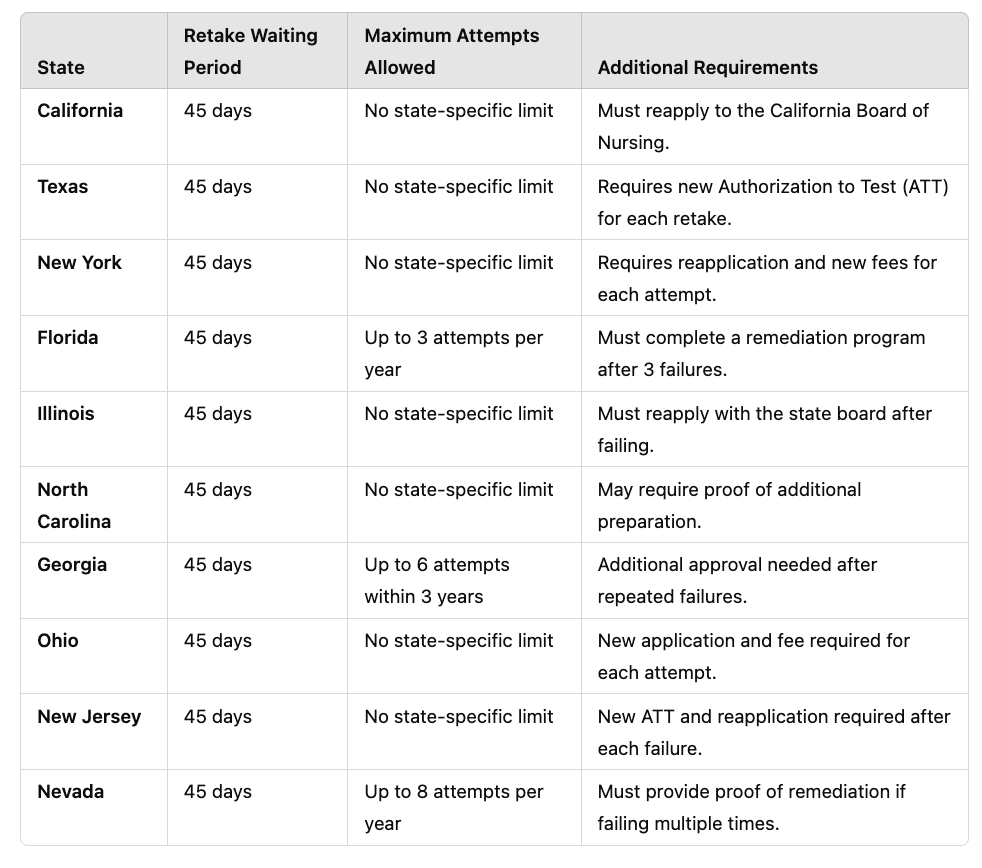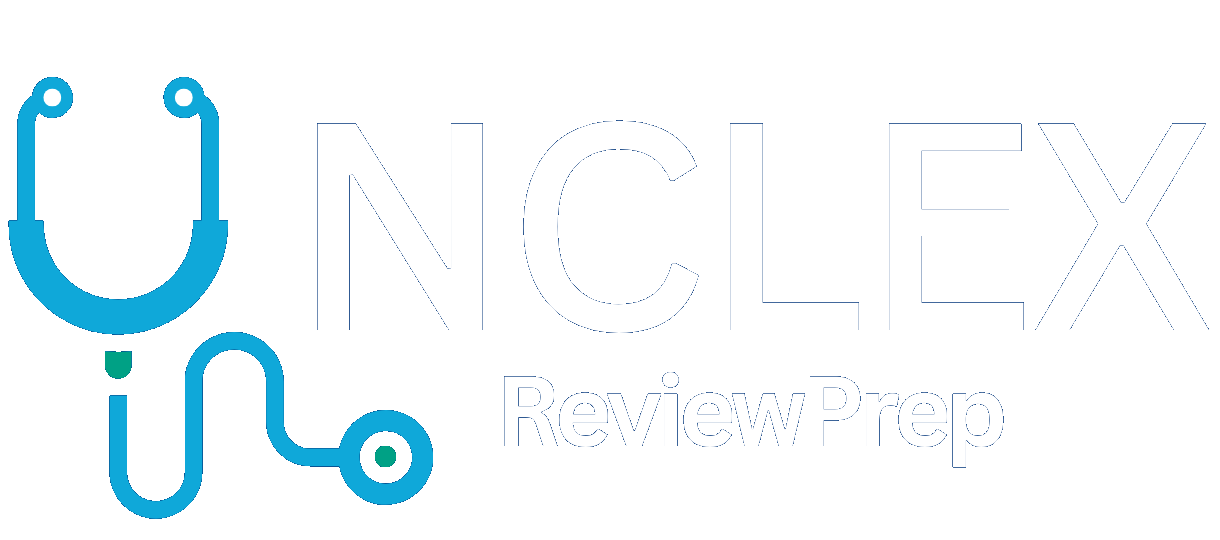
Does Everyone Pass the NCLEX Eventually? 5 Truths vs Myths they don’t want you to know!
The NCLEX (National Council Licensure Examination) is the critical final step to becoming a licensed nurse in the United States or Canada. While the majority of candidates pass on their first attempt, many wonder: “Does everyone pass the NCLEX eventually?” The short answer is yes—with persistence, strategic preparation, and the right resources, success is achievable.
This blog post dives into the statistics, challenges, and actionable strategies for those who are struggling to pass the NCLEX. We’ll also tackle common myths about retaking the exam and provide tips to boost your confidence and chances of success.
Understanding NCLEX Pass Rates: A Clear Picture
To answer the question of whether everyone passes the NCLEX eventually, it’s important to first understand NCLEX pass rates.
Pass Rates for First-Time vs Repeat Test-Takers
The NCLEX pass rate is significantly higher for first-time test-takers compared to repeat candidates.
| Candidate Type | NCLEX-RN Pass Rate | NCLEX-PN Pass Rate |
|---|---|---|
| First-Time U.S.-Educated | 83% | 80% |
| Repeat Test-Takers | 45–50% | 40–45% |
Why the Drop in Pass Rates for Repeat Candidates?
- Lack of a structured study plan after a failed attempt.
- Insufficient practice using NCLEX-style questions.
- High test anxiety and pressure to succeed.
Key Insight: While the pass rate for repeat candidates is lower, those who persist, analyze their mistakes, and adapt their study strategies do pass eventually.
Internal Link: If you are struggling to pass your nclex exams multiple times, check out our RN/PN Exam Score Updates for detailed performance analysis and personalized guidance.
How Many Times Can You Take the NCLEX?
The NCSBN allows candidates to take the NCLEX multiple times until they pass. Here are the guidelines:
- Number of Attempts: Up to 8 times per year.
- Waiting Period: Candidates must wait 45 days between attempts.
- State-Specific Rules: Some states require remedial courses after a certain number of failed attempts.
Key Takeaway: There’s no lifetime limit for retaking the NCLEX. As long as candidates meet state-specific requirements, they can continue their journey toward passing.

Comment: Include a visual infographic explaining “NCLEX Retake Guidelines” for clarity. Alt Text: Visual flowchart outlining NCLEX retake rules and waiting periods.
Is It Common to Fail the NCLEX on the First Attempt?
Failing the NCLEX on the first attempt is more common than most candidates realize. In fact, around 17% of first-time U.S.-educated NCLEX-RN candidates don’t pass the exam.
Reasons Why Some Candidates Fail:
- Insufficient Practice: Not enough exposure to NCLEX-style questions.
- Test Anxiety: Nervousness can impair focus and critical thinking.
- Relying on Memorization: The NCLEX tests application-based knowledge, not just rote facts.
Key Factors That Determine NCLEX Success
Achieving success on the NCLEX, whether it’s your first or third attempt, comes down to three critical factors:
1. A Structured and Realistic Study Plan
A study plan tailored to your strengths and weaknesses is essential for NCLEX success. Here’s how to structure one:
Step-by-Step Study Plan
- Diagnostic Assessment: Start with a practice test to identify weak areas.
- Content Mastery: Spend 70% of your study time on weaker subjects (e.g., pharmacology, prioritization questions).
- Daily Practice: Complete at least 75–100 questions daily under timed conditions.
- Weekly Full-Length Tests: Simulate exam conditions to build stamina.
| Week | Focus |
|---|---|
| Week 1–2 | Review weak subjects, core concepts |
| Week 3–4 | Mixed practice and daily question sets |
| Week 5–6 | Full-length mock tests and revisions |
2. High-Quality NCLEX Resources
Choosing the right study materials can make a significant difference.
Recommended NCLEX Resources:
- UWorld NCLEX QBank: Offers detailed rationales for correct and incorrect answers.
- Saunders Comprehensive Review: Great for in-depth content review.
- RN/PN Exact Exam Questions: Provides realistic NCLEX-style practice questions.
Boost your preparation with our RN Exact Exam Questions & Answers for targeted practice.
3. Test-Taking Strategies and Stress Management
Mastering NCLEX strategies and managing stress are key to success, especially for repeat candidates.
Effective Test-Taking Tips:
- Prioritize Patient Safety: Always select answers that protect the patient.
- Use Elimination: Rule out answers that are clearly incorrect.
- Read Carefully: Pay attention to keywords like “best,” “first,” and “except.”
Stress Management Techniques:
- Practice deep breathing before and during the exam.
- Visualize a positive outcome to reduce anxiety.
- Take regular breaks to maintain focus and energy.
Why Persistence Pays Off: Real-Life Success Stories
Many candidates pass the NCLEX after multiple attempts, proving that persistence and adaptability are key.
Success Story: Overcoming NCLEX Failure
John, a nursing graduate, failed the NCLEX twice. Determined to succeed, he:
- Reassessed His Weaknesses: Focused on pharmacology and patient prioritization.
- Got Our RN/PN Exam Score Updates service.
- On his third attempt, John passed the NCLEX and is now a practicing RN.
Is Failing the NCLEX the End?
Absolutely not. Failure is a temporary setback, not a final destination. Each attempt provides valuable insight into your areas of improvement.
Find out What Happens If You Fail the NCLEX? 3 Proven Strategies to Bounce Back Stronger!
Steps to Take After Failing the NCLEX: A Structured Plan
Failing the NCLEX can be discouraging, but it’s not the end of the road. With the right steps, candidates can transform failure into success.
1. Understand Your Candidate Performance Report
After each NCLEX attempt, candidates receive a Candidate Performance Report (CPR). This report highlights areas where improvement is needed.
How to Use Your CPR Effectively
- Identify Weak Areas: Focus on content sections where you performed below the passing standard.
- Prioritize Study Topics: Allocate more time to sections such as:
- Safe and Effective Care Environment
- Health Promotion and Maintenance
- Pharmacological Therapies
- Create a Targeted Study Plan: Use the CPR insights to tailor your preparation strategy.
| Performance Area | Improvement Action |
|---|---|
| Pharmacology | Focus on medications, side effects |
| Safety and Infection Control | Prioritize patient safety principles |
Consider using our RN/PN Exam Score Updates to analyze your CPR and receive targeted recommendations for improvement.
2. Enroll in a Comprehensive NCLEX Review Program
If self-study hasn’t worked, a structured review program can make a significant difference.
Benefits of NCLEX Prep Programs
- Targeted Learning: Address weak areas identified in your CPR.
- Practice Questions: Programs like UWorld and Saunders provide NCLEX-style practice tests.
- Expert Support: Access to tutors who can guide you through challenging content.
Tip: Combine your prep program with real NCLEX practice materials. Use RN Exact Exam Questions for exam-focused preparation.
3. Retake the NCLEX with a New Mindset
Approaching the NCLEX with the right mindset is critical to success. Here’s how to refresh your perspective:
Practical Tips for Retaking the NCLEX
- Shift Your Focus: See failure as an opportunity to learn and improve.
- Stick to a Schedule: Commit to a 6–8 week structured study plan.
- Simulate Exam Conditions: Take full-length mock tests under timed conditions to build stamina.
- Avoid Overstudying: Balance study time with breaks to prevent burnout.
Key Reminder: Passing the NCLEX isn’t about perfection—it’s about consistent effort and incremental progress.
Can You Work as a Nurse Without Passing the NCLEX?
One of the most common concerns among candidates who fail is whether they can work in the nursing field without passing the NCLEX. Here’s what you need to know:
The Legal Requirements for Nursing Practice
Passing the NCLEX is a legal requirement to obtain a nursing license in the U.S. and Canada. Without a passing score:
- You cannot practice as a Registered Nurse (RN) or Licensed Practical Nurse (LPN).
- Employers will not hire candidates without a valid license.
Alternative Roles While Retaking the NCLEX
While waiting to retake the NCLEX, you can gain experience and stay connected to the healthcare industry through alternative roles, such as:
- Patient Care Technician (PCT)
- Medical Assistant
- Nursing Assistant
- Healthcare Administrative Roles
These positions allow you to:
- Build hands-on experience.
- Improve patient communication skills.
- Stay motivated and focused on retaking the NCLEX.
How to Stay Motivated After Multiple NCLEX Attempts
Motivation can dwindle after multiple attempts, but staying positive and persistent is key to eventually passing the NCLEX.
1. Set Realistic, Achievable Goals
Break your study plan into small, manageable goals. Celebrate each achievement to maintain momentum.
- Example: Complete 75 practice questions daily.
- Example: Finish one content area review each week.
Track Your Progress
Use a study journal to record improvements and track weak areas you’ve strengthened.
2. Build a Support Network
Surround yourself with individuals who encourage and motivate you.
- Study Groups: Collaborate with peers who are also preparing for the NCLEX.
- Tutors and Mentors: Seek professional guidance for accountability and support.
- Friends and Family: Share your goals so they can help keep you on track.
3. Visualize Your Success
Visualization is a powerful tool to build confidence. Imagine yourself:
- Passing the NCLEX.
- Receiving your nursing license.
- Starting your career as a nurse.
Daily Affirmations for NCLEX Success:
- “I am capable of passing the NCLEX.”
- “I am well-prepared and confident in my knowledge.”
- “Each day brings me closer to success.”
Key Takeaways: Persistence Leads to NCLEX Success
Passing the NCLEX eventually is possible for anyone willing to persist. While failure can feel disheartening, every attempt is a learning opportunity. By analyzing your weaknesses, using high-quality study materials, and staying motivated, you’ll increase your chances of success.
Conclusion: The Path to NCLEX Success
The answer to “Does everyone pass the NCLEX eventually?” lies in persistence, preparation, and a positive mindset. While not everyone succeeds on their first attempt, countless nurses have overcome multiple failures to achieve their goals. With the right resources, strategies, and support, you can pass the NCLEX and start your dream nursing career.



Pingback: How Long Does It Take to Get NCLEX Results? Everything You Should Know - NCLEX Review Prep
Pingback: Is the NCLEX the Same in All States? 5 Shocking Differences to Know Before You Test